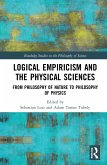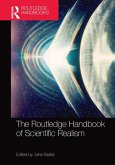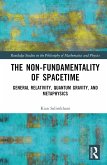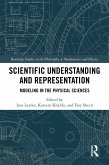This volume brings together philosophers and physicists to explore the parallels between Quantum Bayesianism, or QBism, and the phenomenological tradition. It is the first book exclusively devoted to phenomenology and quantum mechanics.
By emphasizing the role of the subject's experiences and expectations, and by explicitly rejecting the idea that the notion of physical reality could ever be reduced to a purely third-person perspective, QBism exhibits several interesting parallels with phenomenology. The central message of QBism is that quantum probabilities must be interpreted as the experiencing agent's personal Bayesian degrees of belief - degrees of belief for the consequences of their actions on a quantum system. The chapters in this volume elaborate on whether and specify how phenomenology could serve as the philosophical foundation of QBism. This objective is pursued from the perspective of QBists engaging with phenomenology as well as the perspective of phenomenologists engaging with QBism. These approaches enable us to realize a better understanding of quantum mechanics and the world we live in, achieve a better understanding of QBsim, and introduce the phenomenological foundations of quantum mechanics.
Phenomenology and QBism is an essential resource for researchers and graduate students working in the philosophy of physics, philosophy of science, quantum mechanics, and phenomenology.
By emphasizing the role of the subject's experiences and expectations, and by explicitly rejecting the idea that the notion of physical reality could ever be reduced to a purely third-person perspective, QBism exhibits several interesting parallels with phenomenology. The central message of QBism is that quantum probabilities must be interpreted as the experiencing agent's personal Bayesian degrees of belief - degrees of belief for the consequences of their actions on a quantum system. The chapters in this volume elaborate on whether and specify how phenomenology could serve as the philosophical foundation of QBism. This objective is pursued from the perspective of QBists engaging with phenomenology as well as the perspective of phenomenologists engaging with QBism. These approaches enable us to realize a better understanding of quantum mechanics and the world we live in, achieve a better understanding of QBsim, and introduce the phenomenological foundations of quantum mechanics.
Phenomenology and QBism is an essential resource for researchers and graduate students working in the philosophy of physics, philosophy of science, quantum mechanics, and phenomenology.
"Phenomenology and QBism joins the forces of the leading proponents of Quantum Bayesianism and phenomenology of physics to appraise the promise of phenomenology for the foundations of physics. The outcome is an exciting and inspiring collection of essays."
Mirja Hartimo, University of Helsinki, Finland
Mirja Hartimo, University of Helsinki, Finland
"Phenomenology and QBism joins the forces of the leading proponents of Quantum Bayesianism and phenomenology of physics to appraise the promise of phenomenology for the foundations of physics. The outcome is an exciting and inspiring collection of essays."
Mirja Hartimo, University of Helsinki, Finland
Mirja Hartimo, University of Helsinki, Finland








